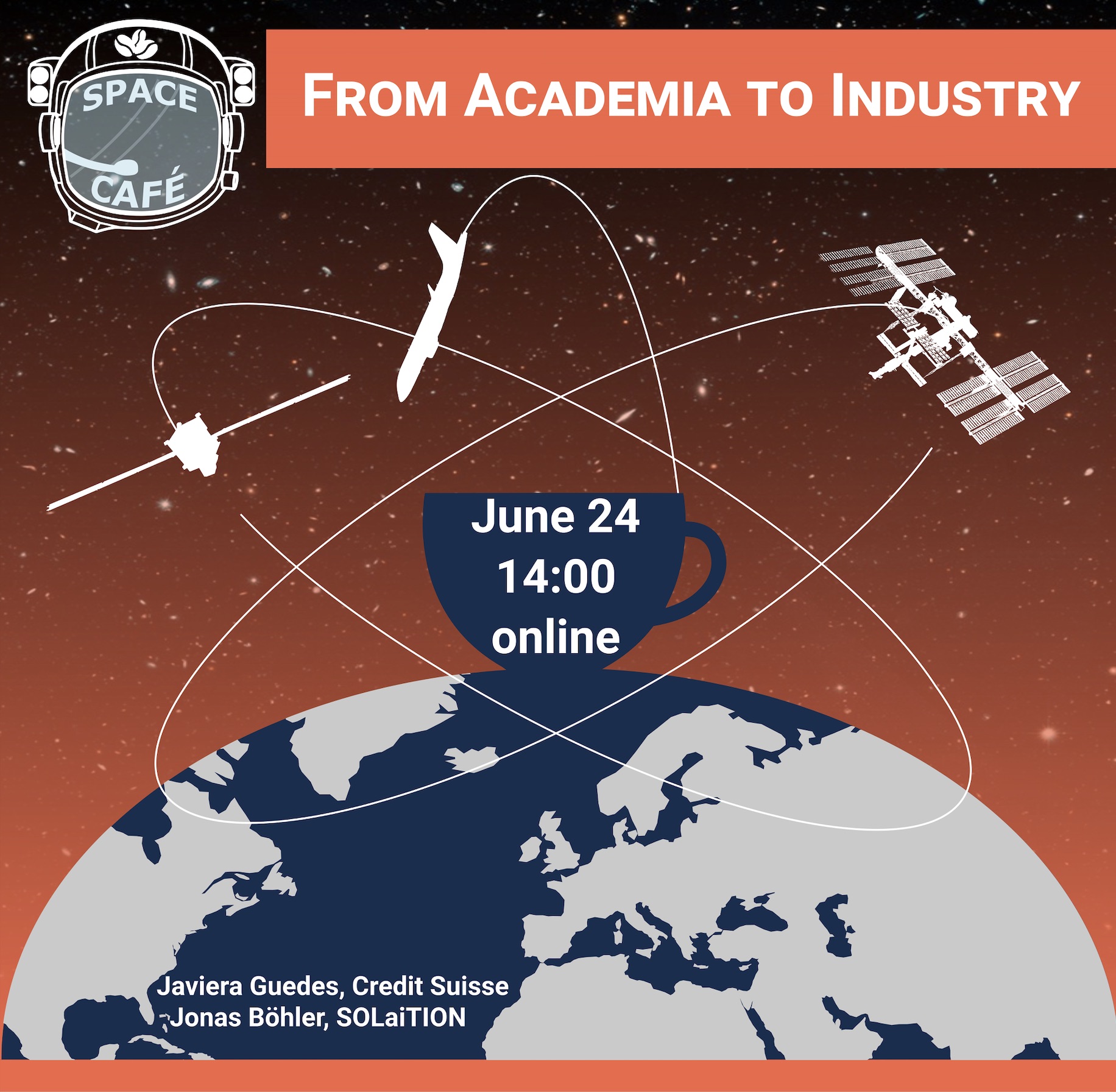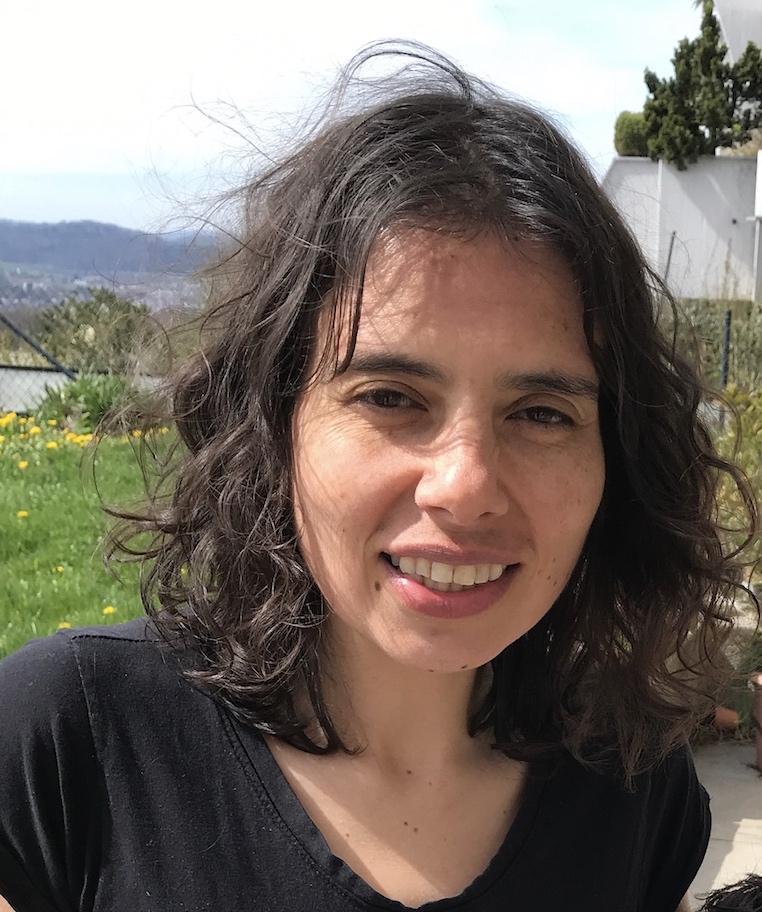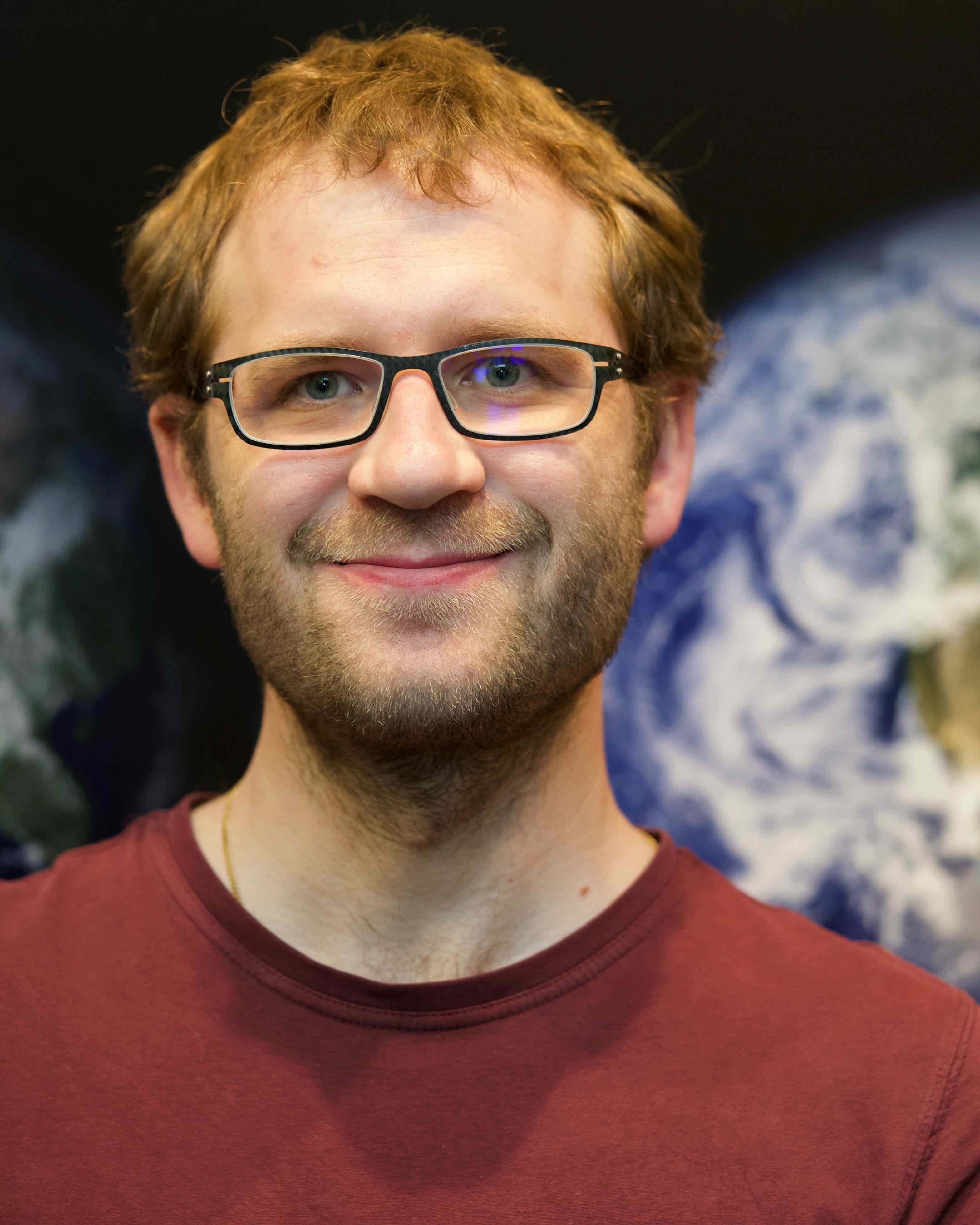How to apply your space knowledge? The transition from Academia to Industry

Are you finishing your PhD and do not know what to do next? Are you a postdoc, looking at the numerous options available in industry, re-evaluating your life-goals? You are not alone! Many researchers decide to continue their career in industry, adapting their academic knowledge. How to successfully do this transition? Our speakers, Javiera Guedes and Jonas Böhler, astrophysicist and geographer respectively, will tell you more about their journey, giving you practical advice on how your space-related knowledge and skills can lead you towards a non-academic career.
Learn more about the transition at our next event on June 24, 2021, at 14:00 via Zoom. Registration is mandatory at the end of this page.
More about Space Café event series.
Speakers

Javiera Guedes is a senior data scientist at Credit Suisse, where she derives insights from the web behavior of visitors (clients and non-clients) to understand their needs. Formerly, she worked at Teralytics, a promising Swiss startup that uses mobile data to understand mobility and people flow. Before working in industry, Javiera was an astrophysicist at ETH. She obtained a double bachelor's degrees in Physics and Astrophysics at UC Berkeley and a PhD in computational astrophysics at the UC Santa Cruz. She was awarded top prizes such as the Hubble and Einstein Fellowships for her contributions in the fields of planet formation, black hole dynamics, and galaxy evolution using high-resolution cosmological simulations.
Talk: Transitioning from Academia to Data Science: A Practical Guide
After obtaining our PhDs, or perhaps after having worked on one or two postdocs, we may realize that the path ahead is not necessarily narrow or determined. The uncertainty of our academic future in combination with the many options available in industry provide the perfect arena for self-assessment and the re-evaluation of our life goals. However, leaving our comfort zone and our area of expertise can be daunting, especially over the last ten years when the field of data science exploded in both breath and depth, mainly due to the algorithmic maturity and advances in computing. In this talk, I will give you practical advice on how to transition from academia into data science, and what do to get your first job in industry.

Dr. Jonas Böhler currently works at SOLaiTION, a 2nd year start-up and joint venture of KoPa and Sipro that uses photogrammetry to determine the volume of fill heaps. In 1983 he saw the light of day and after elementary school he did an apprenticeship as an electronics technician. At the same time, he completed the vocational baccalaureate and subsequently attended the cantonal baccalaureate school for adults. After a detour into mathematics, he studied geography at the UZH and got his doctorate in the Remote Sensing Laboratories of the University of Zurich.
Talk: Be open to everything
In Switzerland, you get to decide at 16 what you want to do for the rest of your life. At that time, I didn't want to know anything more about school and therefore decided on vocational training. After that, I took the second educational route to get my Matura. To keep all my options open (especially history and philosophy) I even struggled through Latin. After my apprenticeship as an electronics technician, I was convinced that I didn't want to do anything more in the technical direction. Fortunately, I had very good math, physics and chemistry teachers at the Matura school who rekindled my interest in the natural sciences. I then tried mathematics, but found that it was too theoretical for me. Fortunately, I started with geography in the spring semester and had remote sensing as my first lecture and the enthusiasm continues to this day!